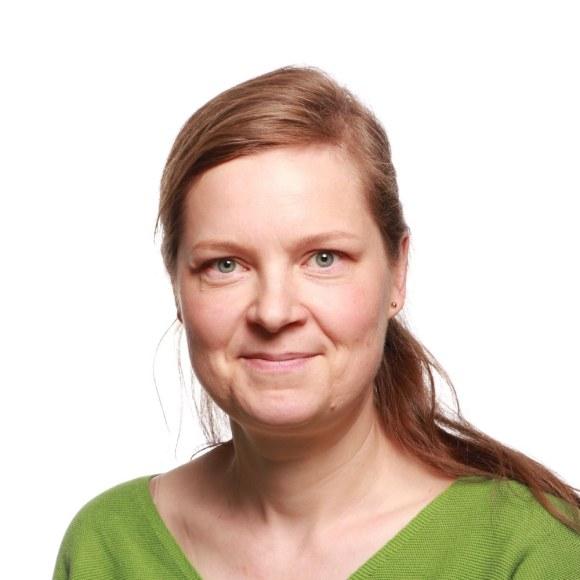We conduct research in data science and statistics, focusing on diverse applications. We develop innovative machine learning models for image processing, medicine, and financial forecasting. In statistics, we concentrate on probabilistic machine learning, finite mixtures, survival analysis, and time-series analysis. We explore rule-based, machine learning and AI approaches for NLP. Our recent focus is on fair and transparent machine learning and recommender systems. We also study complex systems using network science in social, biological, and financial networks. Our developments apply across fields like image processing and social network analysis.
Signal Analysis and Machine Intelligence
In the field of Machine Learning, Prof. Gabbouj’s Signal Analysis and Machine Intelligence Group introduced a paradigm shift in ANN by extending the linear operation part of the perceptron to an arbitrary nonlinear function. In this way, Multilayer Perceptrons (MLP) were upgraded to Generalized Operational Perceptrons, and Convolutional Neural Networks (CNN) were extended to Operational Neural Networks (ONN).
Financial Computing and Data Analytics
Prof. Kanniainen is leading Financial Computing and Data Analytics group. His group, in collaboration with Prof Gabbouj, has developed interpretable Machine Learning methods for Time-Series Modelling. The model is called Temporal Attention-Augmented Bilinear Network, which is highly interpretable, given its ability to highlight the importance and contribution of each temporal instance, thus allowing further analysis on the time instances of interest. Moreover, the group has developed network methods to model information cascades with partial observations on individuals’ states, which are applied for stock markets. These methods can be used to study how social relations drive investors in their decision making and to identify abuse of information in stock markets.
Natural Language Processing
Our Natural Language Processing group, led by Prof. Nummenmaa, has developed novel rule-based and machine learning approaches for question answering, to retrieve answers to natural language queries from big data and knowledge bases. The group has also developed methods for managing and analyzing grammatically parsed data and worked on different text mining tasks, such as frequent pattern mining and distinguishing pattern mining, including sequence mining for textual representations, suitable for mining biological data, represented as text.

Recommender Systems
Recommender Systems tend to anticipate user needs by automatically suggesting the information which is most appropriate to the users and their current context. Prof. Stefanidis' Recommender Systems Group focuses on algorithmic approaches for traditional and more sophisticated scenarios, like group and sequential recommendations, developing and applying machine learning solutions, and building on both numerical ratings and textual reviews. Moreover, the group studies the big data integration and entity resolution problem for highly heterogeneous data, with a recent focus on progressive solutions for entity matching.
Statistical Machine Learning and Exploratory Data Analysis
Prof. Peltonen’s Statistical Machine Learning and Exploratory Data Analysis Group focuses on designing and developing Statistical Machine Learning solutions for modeling and exploring data. This includes novel methods for modeling text and matrix data with topic modeling approaches, vectorial embedding approaches generalizing word embeddings, and novel matrix factorization solutions. His group also works on methods for information retrieval from large databases, including modeling and elicitation of user intent by Bayesian regression, probabilistic retrieval, and visualization of user intent.

Data Analytics and Optimization
Prof. Lipping’s Data Analytics and Optimization group, located at the Pori Campus, develops deep learning and AI solutions for agriculture, health, and industry.

Tampere Complexity Lab
The Tampere Complexity Lab, Prof. Iñiguez’s research group in network science and computational social science, develops computational tools and mathematical theories to understand collective human behaviour by analyzing data and making models of social digital interactions available online. TaCoLAB uses an interdisciplinary, data- and mechanism-driven perspective to study group segregation in social networks, attitudinal polarization online, information diffusion, and the dynamics of ranked and hierarchical complex systems.
Predictive Society and Data Analytics
Prof. Emmert-Streib’s group, Predictive Society and Data Analytics Lab, conducts innovative research in data science with a deep appreciation for statistical thinking. The group studies a wide range of data types, e.g., genomics data, text data and network data by developing and applying methods from machine learning, AI and statistics. Current methodological focus is on learning paradigms, including transfer learning, multi-label classification and the digital twin, and deep learning architectures. Furthermore, the inference and analysis of networks is studied by network science.
Responsible Data Management and Ethical Artificial Intelligence
Profs. Nummenmaa, Peltonen, Elomaa, Stefanidis and Juhola focus as well on Responsible Data Management and Ethical Artificial Intelligence, where a rising concern is how to perform statistical data analysis and machine learning in an ethical, fair, transparent, and explainable manner. In this line of work, we also focus on enabling different stakeholders to query, understand and fix sources of bias in data science solutions, in an accessible and transparent manner. Methods for providing explanations that target at understanding the cause of unfairness and examine the capability to capture user intent that typically changes across sessions are developed.
Multimedia and Data Mining
Prof Visa's Multimedia and Data Mining Group works with explainable machine learning or artificial intelligence. The main application fields for this technique are time series of hyperspectral signals or images.

Urban Physics Research Group
The way our urban areas are designed influences the amount of energy we consume, our exposure to environmental hazards such as pollution and climate change, and our health. The Urban Physics Research Group uses data science and physics-based models to understand how to design urban environments that are healthy and energy efficient, now and in the future.

Decision Support for Health
The group, led by prof. Mark van Gils, develops data-driven analysis methods to help healthcare professionals and patients get actionable information out of complex health-related data. The groups’ methods are typically based on combinations of biomedical signal processing, (explainable) AI and ML, and statistical analysis. Our methods are designed to work with real-life, suboptimal quality, data, and coming from different modalities. As specific domain examples, we have several decades of expertise in critical care decision making (intelligent patient monitoring, intervention planning) and chronic diseases (risk assessment, recommendation and motivation). Furthermore, we actively contribute to health ICT standardization initiatives.
Applied Statistical Data Analysis
Our Statistics Research is strongly connected with data science but has both its own distinct aspects within data science and its own core research separate of data science: in particular, solutions of tasks are carried out via statistical modeling, analysis of time-dependent data (timeseries, longitudinal), planning of data gathering, treatment of distributional assumptions, representation and management of uncertainty, probabilistic estimation and inference, prediction and hypothesis testing, and the research and theory of these core methodologies is unique to statistics. The Group of Applied Statistical Data Analysis conducts applied statistical research, where statistical methods are used and modified to solve research problems in different disciplines, for example in health, medicine, social sciences and technology.

AI Hub Tampere
The principle of AI Hub Tampere is to make AI easy to reach and affordable, and thus all our services are free of charge, neutral and equal for all companies active in Pirkanmaa. The AI Hub is part of nationwide network of AI centres that is developing fast. Our aim is to assist local companies in boosting their competitive edge. Our focus has been on sustainable AI, health technology, and energy efficiency. The methods and devices we often work with include collaborative robots and self-driving vehicles.


















